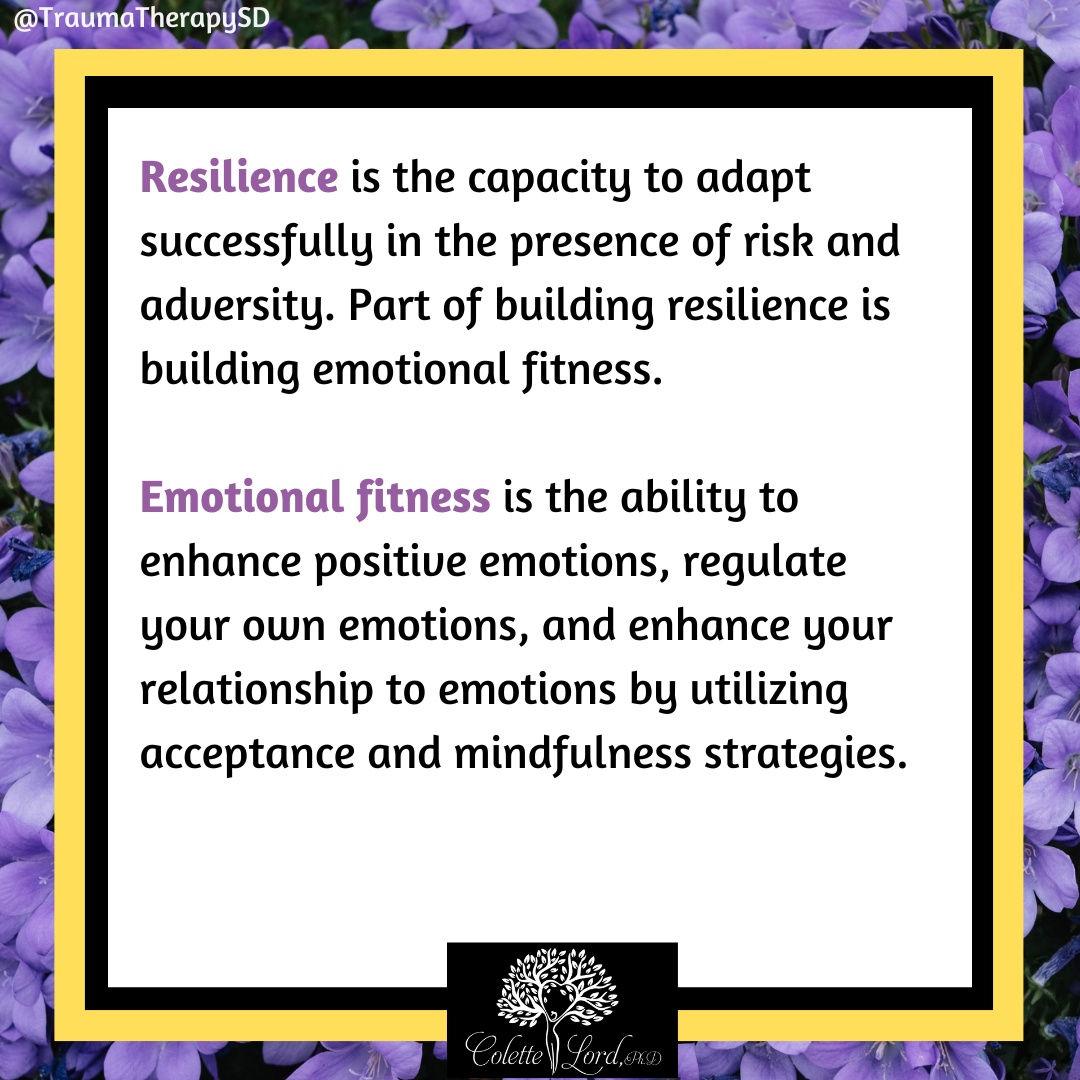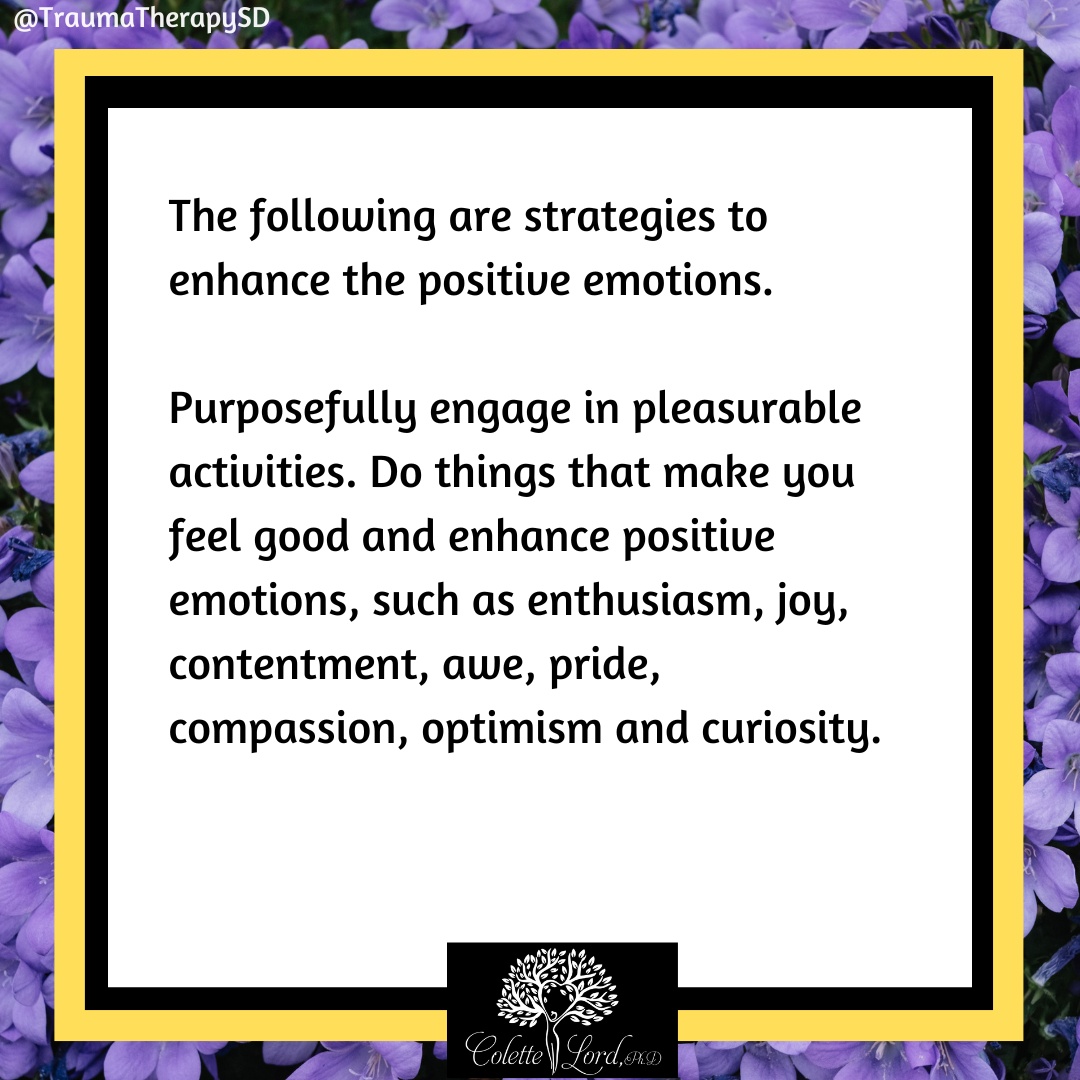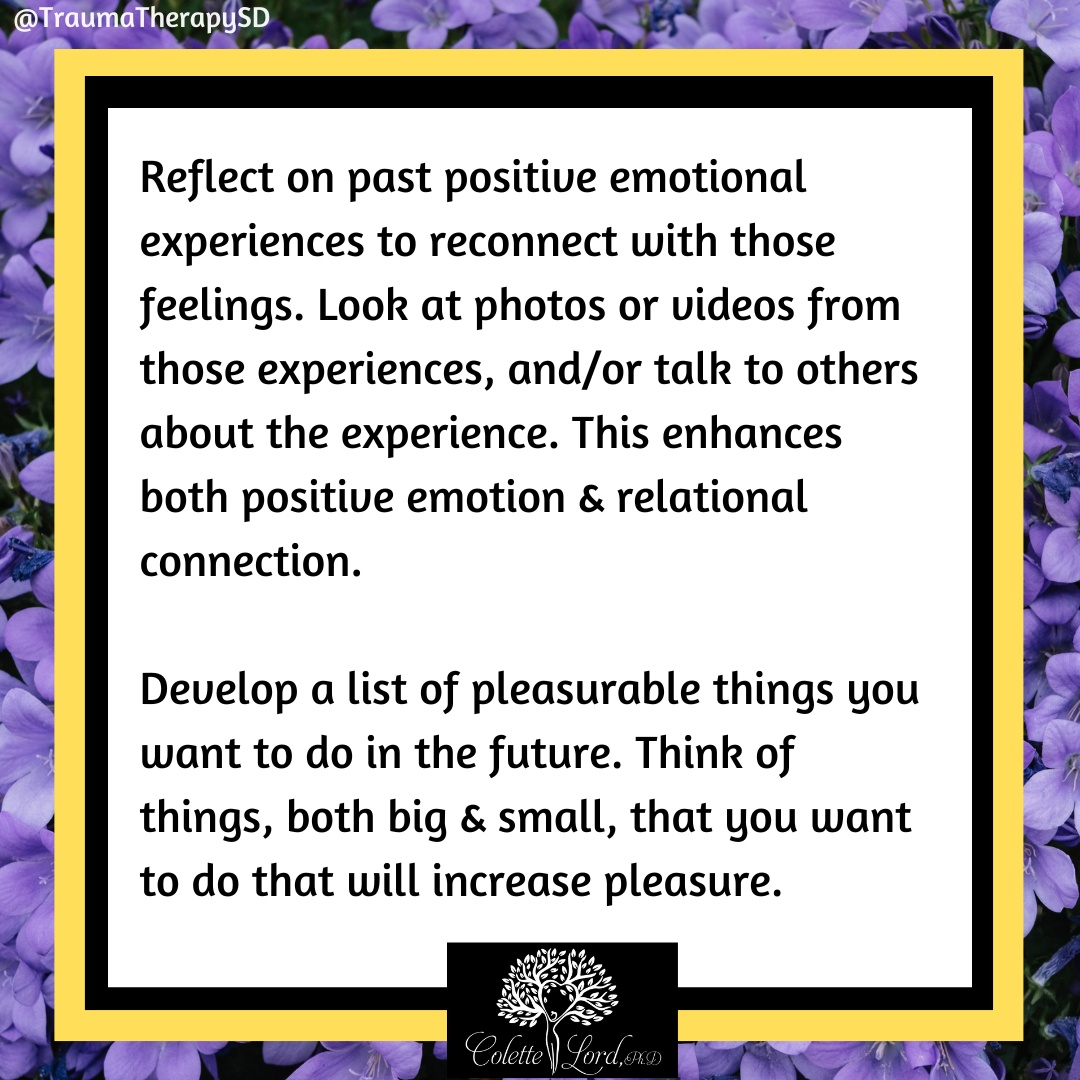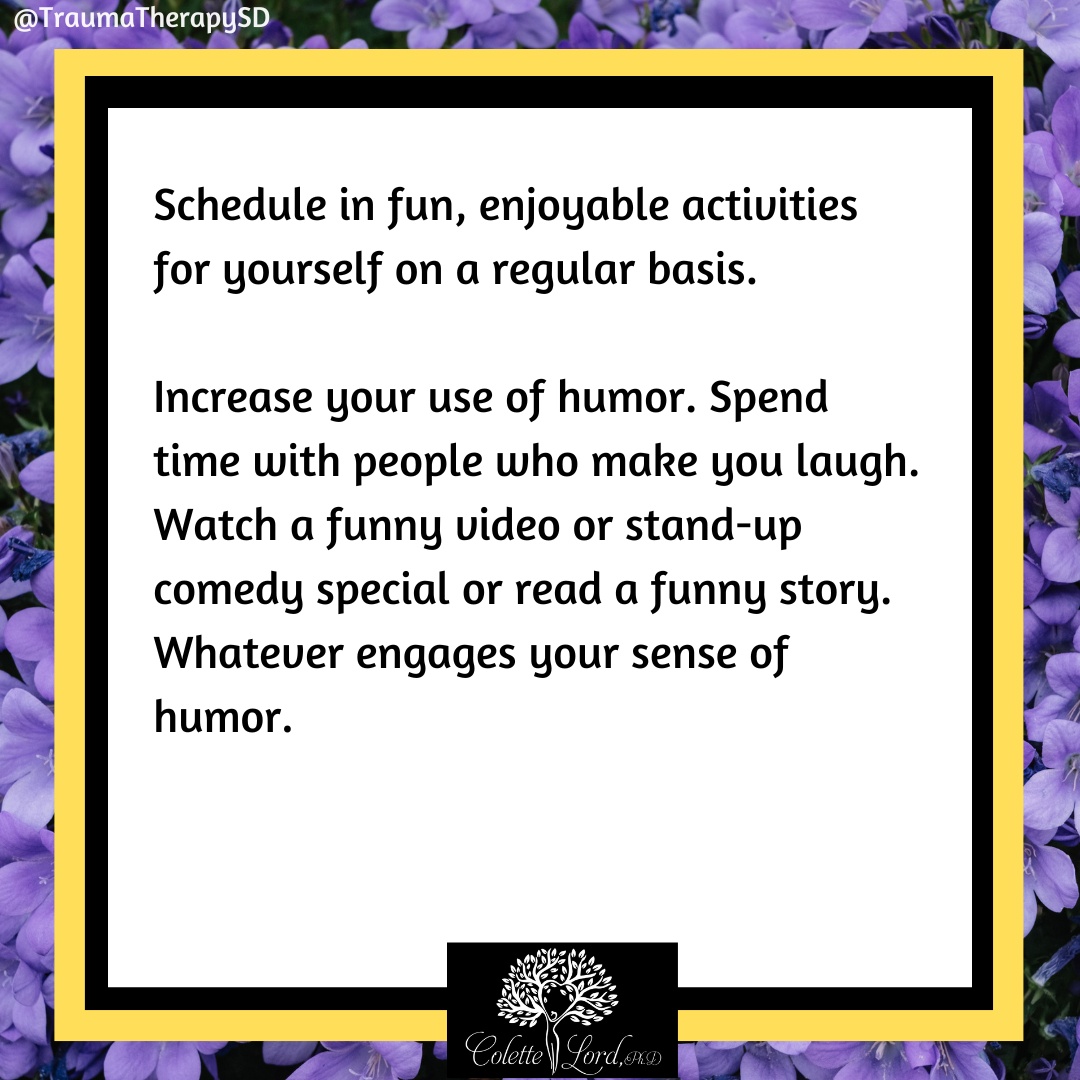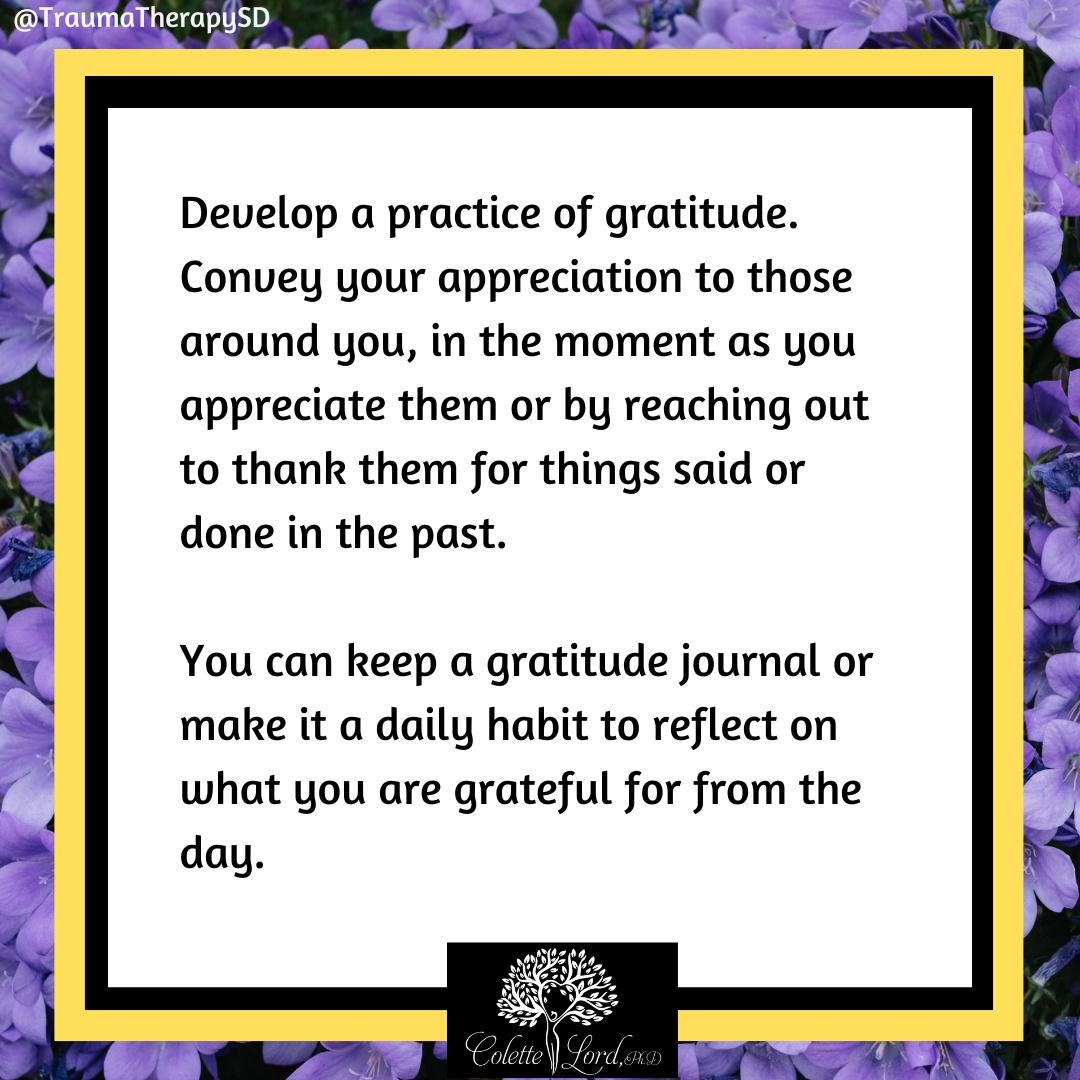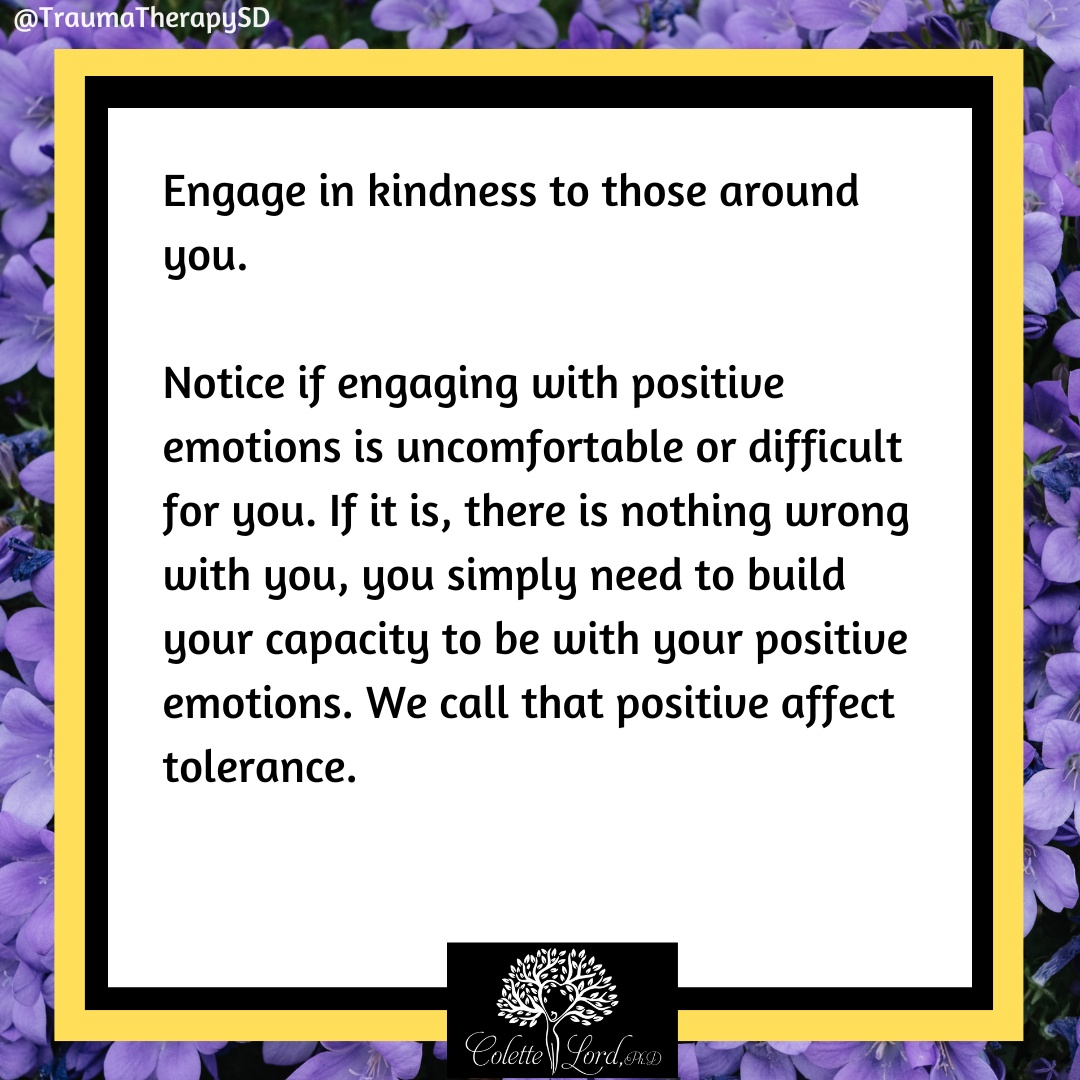Emotional Fitness
Resilience is the capacity to adapt successfully in the presence of risk and adversity. One aspect of resiliency is emotional fitness.
Emotional fitness is the ability to enhance positive emotions, regulate your own emotions, and enhance your relationship to emotions by utilizing acceptance and mindfulness strategies. The following are strategies to enhance the positive emotions. Purposefully engage in pleasurable activities. Do things that make you feel good and enhance positive emotions, such as enthusiasm, joy, contentment, awe, pride, compassion, optimism and curiosity. Reflect on past positive emotional experiences to reconnect with those feelings. Look at photos or videos from those experiences, and/or talk to others about the experience. This enhances both positive emotion and relational connection. Develop a list of pleasurable things you want to do in the future. Think of things, both big and small, that you want to do that will increase pleasure.
Schedule in fun, enjoyable activities for yourself on a regular basis. Increase your use of humor. Spend time with people who make you laugh. Watch a funny video or stand-up comedy special or read a funny story. Whatever engages your sense of humor. Develop a practice of gratitude. Convey your appreciation to those around you, in the moment as you appreciate them or by reaching out to thank them for things said or done in the past.
You can keep a gratitude journal or make it a daily habit to reflect on what you are grateful for from the day.
Engage in kindness to those around you.
Notice if engaging with positive emotions is uncomfortable or difficult for you. If it is, there is nothing wrong with you, you simply need to build your capacity to be with your positive emotions. We call that positive affect tolerance.
This will be the first of two posts on emotional fitness, so stay tuned for more info.
Source: Dr. Donald Meichenbaum’s book Roadmap to Resilience

